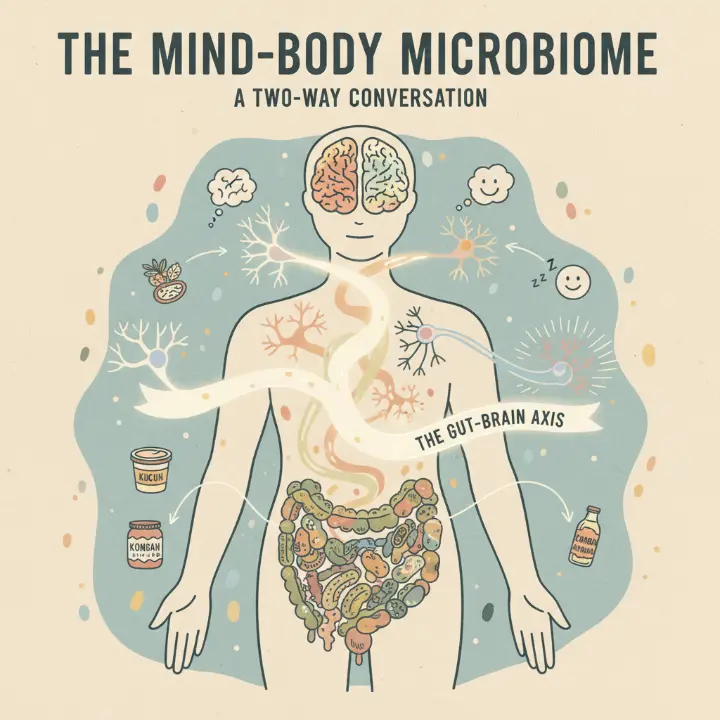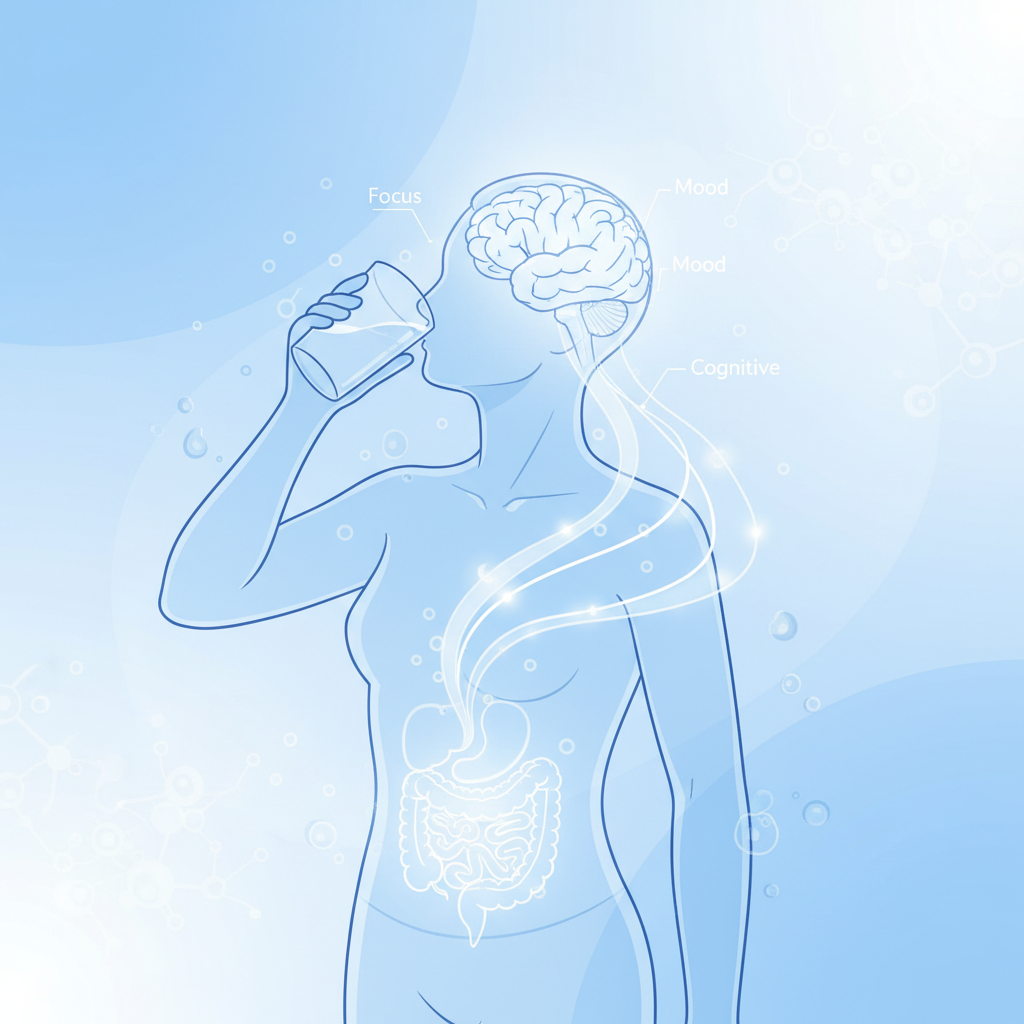Your gut is often called your "second brain" — and for good reason. The connection between digestive health and mental wellness is one of the most exciting discoveries in modern health science, revealing how the trillions of bacteria in your intestines directly influence your mood, stress levels, and overall brain function.

Understanding the Gut-Brain Axis
The gut-brain axis is a bidirectional communication system linking your digestive tract with your central nervous system. This connection involves the vagus nerve, immune system signals, and neurotransmitters produced by gut bacteria. Remarkably, about 90% of serotonin — the feel-good hormone — is produced in your gut, not your brain.
When your gut microbiome is balanced, it supports healthy neurotransmitter production, reduces inflammation, and strengthens your body's stress response. Conversely, an imbalanced gut can contribute to anxiety, depression, and cognitive fog.
Signs Your Gut May Be Affecting Your Mental Health
- Persistent digestive issues accompanied by mood swings
- Brain fog or difficulty concentrating after meals
- Increased anxiety or depression without clear triggers
- Poor sleep quality despite feeling tired
- Unexplained fatigue or low energy levels
Five Ways to Improve Your Gut-Brain Connection
Eat More Fermented Foods
Incorporate kimchi, sauerkraut, kefir, and yogurt into your daily diet. These foods contain beneficial probiotics that populate your gut with healthy bacteria, supporting both digestion and mental clarity.
Increase Fiber Intake
Fiber feeds your beneficial gut bacteria, helping them thrive. Aim for 25-35 grams daily from sources like vegetables, fruits, whole grains, and legumes. This prebiotic fiber acts as fuel for your microbiome.
Manage Stress Through Movement
Regular exercise reduces inflammation, stimulates healthy gut bacteria growth, and releases endorphins. Even 20-30 minutes of daily walking can significantly improve both gut and mental health.
Prioritize Quality Sleep
Your gut bacteria follow circadian rhythms just like you do. Consistent sleep schedules help maintain a balanced microbiome, which in turn supports better sleep quality — creating a positive feedback loop.
Limit Processed Foods and Artificial Sweeteners
Ultra-processed foods and artificial additives can disrupt gut bacteria balance, triggering inflammation that affects brain function. Focus on whole, minimally processed foods whenever possible.
The Role of Hydration
Water is essential for digestive health and toxin elimination. Adequate hydration supports the mucosal lining of the intestines, helps maintain bacterial balance, and ensures efficient nutrient absorption. Aim for 8-10 glasses daily, adjusting based on activity level.

When to Seek Professional Help
If you experience persistent digestive issues alongside mental health concerns, consult a healthcare provider. A functional medicine doctor or gastroenterologist can assess your gut health through specialized testing and create a personalized treatment plan.
The gut-brain connection offers a powerful approach to holistic wellness. By nurturing your digestive system through mindful eating, stress management, and lifestyle choices, you're simultaneously supporting your mental health. Small, consistent changes to your daily routine can lead to profound improvements in both how you feel physically and mentally.